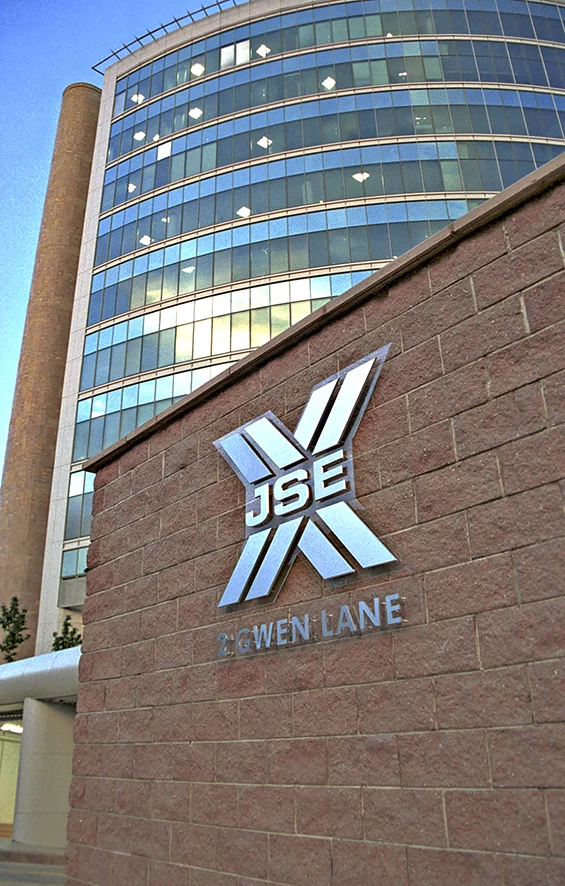The Johannesburg Stock Exchange (JSE) this week marked its 135th year of existence. Since being launched in 1887, the world-renowned bourse has grown to be the largest stock exchange in Africa and the 19th largest stock exchange in the world by market capitalisation.
However, the JSE marks the milestone in a tough year, with many companies delisting from the exchange, and many more expected to follow suit.
Having started off 2022 with 332 listed companies, this year is looking especially bad with 18 companies having already delisted and at least another 14 delistings under way. Add to this the 16 or so distressed companies that are suspended from trading and which are almost certain to delist at some point, the accelerating impact of delistings is clear.
The bourse also has 94 listed Exchange Traded Funds (ETFs), over 2 000 bonds listed, 55 sustainability bonds on the sustainability segment with an overall market capitalisation of more than R20-trillion.
Asset and wealth management business Anchor Capital’s CEO Peter Armitage said the JSE should be worried about the huge number of companies delisting as it means less business for the JSE and a smaller financial market for South Africa. He said he expected more companies to leave the JSE. “The valuation achieved by particularly smaller companies is less than what is achieved in private.”
One of the criticisms levelled at the JSE is that it has been largely an institutional market that lacks deep penetration by retail customers.
“The JSE is predominantly an institutional market by volume, although there are increasingly more retail customers. I believe a player like Easy Equities has over one million retail accounts. Growth in the SA economy, with subsequent company profit growth, is the best advertisement, but the JSE has no influence over this.”
Institutional investors trade and invest in such massive quantities that they receive special treatment, such as much lower fees per transaction, while retail investors are individuals using their own money to invest, for the sake of their own personal financial goals.
Retail investors use their own resources and knowledge to build a trading and investment strategy, while institutional investors may have thousands of employees and access to vast pools of data and sophisticated analysis tools.
Andrew Bahlmann, CEO of corporate advisory firm Deal Leaders International, said in 1999 the JSE had 811 companies listed on the main board and now has about 288 companies.
“The JSE is on a seven-year losing streak with on average 25 companies a year delisting across all stock exchanges. Put another way, the JSE has 18% fewer listings than it did seven years ago. However, delistings from public markets is a global phenomenon, and the trend has been visible for a decade with stock markets around the world shrinking, as badly as the JSE, if not worse: the Luxembourg bourse has 55% fewer listings, the Deutsche Börse 36% fewer, the Swiss 22% fewer, and the London Stock Exchange 21% fewer,” Bahlmann said.
He added that public capital markets in general had a structural problem in that the big institutions dominated the market and typically only invested in the largest 80 to 100 listings.
“This means new companies cannot get finance, while existing companies experience very poor ratings. In this environment, private capital is seen by entrepreneurs as superior.”
He also expects the capital flight from the JSE to continue.
JSE CEO Leila Fourie said there were multiple factors driving the number of listings and delistings on a stock exchange, such as the macro environment and investor sentiment.
“We are currently operating in an economic environment, locally and globally, that is deeply challenged and complex and less than ideal for IPO’s. Also, we have seen a number of delistings driven by corporate actions and lower liquidity in the small capitalisation market.
“The JSE has embarked on initiatives to grow the number of listings in the equity market. We have recently announced amendments to our listing requirements to cut red tape. The amendments are aimed at improving the competitiveness of the JSE and making it more efficient, fair, transparent and attractive to issuers and investors.”
Fourie added that the JSE is continuously reviewing its listing requirements to ensure it is fit-for-purpose and relevant to prevailing market conditions.
“We also continue to find ways to increase exposure of small caps companies.”
Between 1900 and 2016, the annualised real return on South African equities was 7,2%, beating 23 other countries like the US, the UK, Germany and Japan, according to a study by the Credit Suisse Research Institute and the London Business School.
Follow @SundayWorldZA on Twitter and @sundayworldza on Instagram, or like our Facebook Page, Sunday World, by clicking here for the latest breaking news in South Africa. To Subscribe to Sunday World, click here



